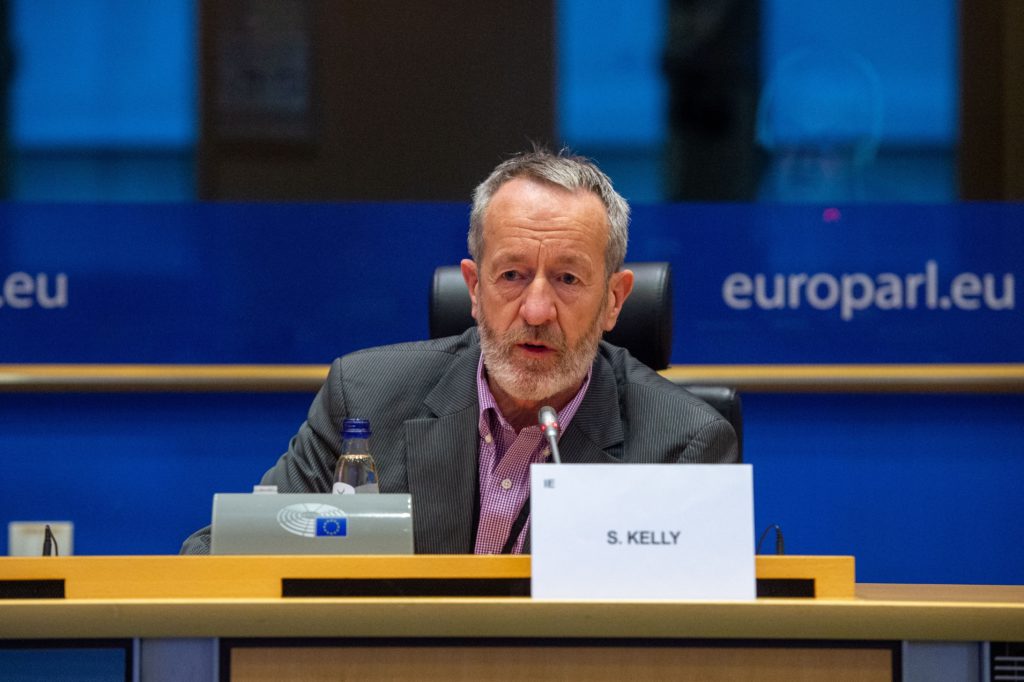Published: Thu, 13 January 2022
Share this

Although the UK left the EU over two years ago, there is still considerable disagreements concerning the implementation of the Northern Ireland Protocol. This agreement keeps Northern Ireland in the EU’s single market for goods to protect the highly integrated all island economy and safeguard the Good Friday Agreement (GFA), which brought peace to the island of Ireland.
From an economic point of view, Northern Ireland is performing better than any other region in the UK, with the Protocol protecting it from the negative effects of Brexit. In fact, it is starting flourish under its opportunities. For its part, the European Commission came forward with unpreceded levels of flexibility to its rules to try to solve some of the remaining issues.
The unique historical, legal and social circumstances on the island of Ireland, with part of the island under the legal jurisdiction of the UK, means that Brexit imposes fundamental impacts on the country.
Changes in the customs arrangements has added some additional procedures in sending goods between Britain and Northern Ireland has angered a sizeable cohort, the majority of which from the pro-British unionist communities, causing tensions to flare up again. Some of the extreme elements of which have engaged in rioting and violence, but the Northern Ireland of today, although still carrying the scars from the past, has continued down the process of peace building and has become more resilient because of this.
The tension is due in no small part to the irresponsible and self-serving rhetoric of some political figures, using genuine issues concerning the practical functioning of the Protocol as a vehicle to advance short-term political goals.
Protection of the GFA is a pillar of US foreign policy, a rare case of long standing bipartisan consensus in an otherwise hyper-polarised political scene. Successive Presidents, Democrat and Republican, and leaders in both Houses of Congress, have positively influenced the peace process, utilising their unique position of having deep connections to both the UK and Ireland.
The UK and the US also share a close and long-standing relationship, being key allies in many areas. With the prospect of a US trade deal being the key driver for many Brexiteers, President Biden finds himself in a position where he can positively influence the stability in Northern Ireland by pressuring the UK not to renege on agreements that they have just signed up to, such is the frequent threat by Boris Johnson and his government.
Beyond statements, the Biden Administration decided to keep Trump-era tariffs on steel and aluminium UK imports, instead lifting tariffs on the same commodities to EU manufacturers. This was a clear rebuke of UK threats and it was no coincidence that suddenly the political language started to soften, bringing with it more room for productive dialogue.
President Biden, who is immensely proud in his Irish roots, wisely correlating his conviction in protecting the GFA with the need to keep the Protocol, poses a problem for Boris Johnson. Unlike, Paris, Brussels or Berlin, attacks on Washington are not in his political or diplomatic interest and would directly fly in the face of “global Britain”.
An agreement between the UK and the EU is in the strategic and economic interests of the US. Disruption and uncertainty is not good for businesses or trade, nor is it beneficial to have your geopolitical allies at odds with one another.
Nevertheless, the unfortunate truth is that Boris Johnson has a major credibility problem. Yes, genuine issues exist – and continued dialogue is necessary to find their fair remedy – but it is the politics, not the technical aspects that remain the biggest barrier.
However, many of Boris Johnson’s Tory backbenchers have an ideological vision of Brexit, combined with little understanding or concern of how it will affect the fragile situation in Northern Ireland. Like the US, the UK is in a state of polarisation, with Brexit dividing the electorate along brand new political lines. With a series of high profile scandals, a stunning by-election defeat in a district conservatives held for over 200 years (North Shropshire) and the worsening pandemic, Boris Johnson is under extreme pressure from his own party.
The Prime Minister’s lead negotiator and Brexit Minister, David Frost, has now resigned citing his disillusionment with the direction of Boris Johnson’s government (the 47th ministerial resignation related to Brexit). However, the departure of David Frost, a hardliner fundamentalist, provides a rare opportunity to reinject trust into a pivotal moment in negotiations.
With elections just around the corner in Northern Ireland, a deal must be reached in January if we are to have any hope of stability. The Biden Administration is in a unique position at this critical time. With little effort, President Biden can pressure both parties (mostly the UK) to negotiate in good faith for a mutually beneficial agreement, which for all intents and purposes, is within reach.
This would be good for business all around.
ENDS
Sean Kelly is a three term Irish Member of the European Parliament (MEP) and Former President of the Gaelic Athletic Association (GAA). His the lead MEP for trade matters with the UK, Chair of the UK Monitoring Group and First Vice-Chair of the EU/UK Parliamentary Assembly. Mr. Kelly has also served two terms on the European Parliament’s Delegation for Relations with the United States and has been a long-time advocate for closer EU and US relations.